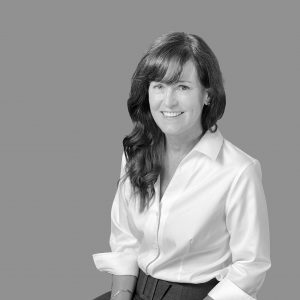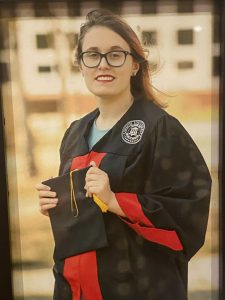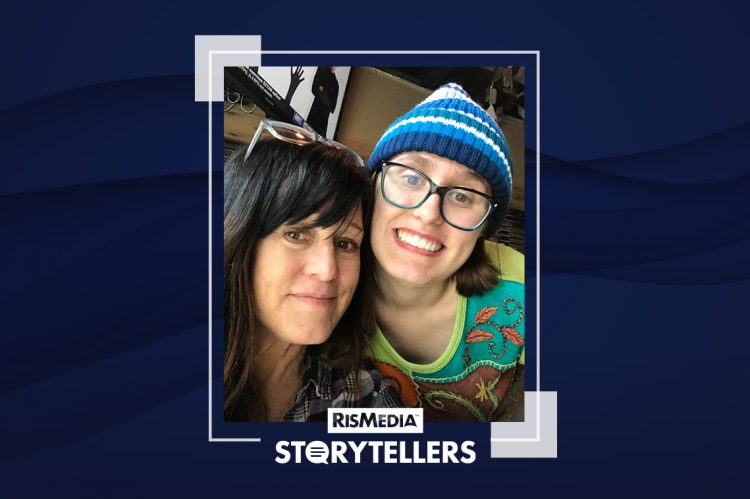Above: Katie Lappe, left, with daughter Abby.
Housing is for everybody. That is a goal, not a statement of fact. There remain a myriad of barriers—racial discrimination, lack of availability of homes, red tape, debt—that prevent huge swaths of people from achieving homeownership. If the mission of real estate professionals is to move toward that goal of homeownership for all, the challenge is enormous, and there is always more work to do.
For Katie Lappe, this challenge and work is also deeply personal. Her daughter, Abby—who is on the autism spectrum and deals with language and visual issues—fought hard to achieve tremendous success in her life, and eventually decided to buy a home. That journey, and seeing what it was like for people like Abby navigating the real estate process inspired Katie to create change across the whole industry—for Abby’s sake, and for millions of others like her.

Katie Lappe: My family was with multi-million dollar real estate producers—I was never an agent myself, but I always handled the tech and marketing for my family. I considered becoming an agent, and my mother said, ‘“Don’t do that. Do what you’re good at.”
I have a degree with the Tennessee bar to go to court for attorneys, and I also specialize in patent law, and that was going to be my life. Well, lives don’t always turn out the way you want them to.
My daughter woke up one day and had a neurological attack—at two years old, she had a really bad allergic reaction. She suddenly couldn’t walk, and she suddenly stopped talking to me. She disappeared. I couldn’t go to work, as I suddenly had to take care of this child, who is my heart and soul. And I got to work on giving her the best opportunity in life. You have to remake your life, you have to work at home and you still have to pay the bills—all the medical bills that pile up.

After founding and building two real estate-focused companies while helping Abby get her college education, Katie saw her daughter’s ambition grow, and started to realize there were more challenges ahead.
KL: Abby wakes up one day and she’s excited, she’s getting great grades in college, doing all that fun stuff. And she goes, “Mom, after college I want to get a full-time job. I want to get a house, I want to get married, I want like 20 dogs.” I’m like, “Oh honey, let’s talk about the dogs later.”
But I love real estate—REALTORS®, they’re the ones that supported me so I could take care of my daughter. I feel like I have a debt to repay.
Abby started to get frustrated . She has someone who reads for her in college. And then it was like lightbulbs going off. This is not about Google Translate. This is not about auto-captioning. This is ADA-compliant software that is for real estate listings, specifically for our industry.
My mission in life is to have this software implemented on every real estate listing out there. Because when you do that, you help people understand about the properties, and you open up a conversation. It’s too important.

Katie’s DO AudioTours™ software is designed to allow multilingual, neurodiverse, hearing impaired and a host of other people to navigate the home-buying process with deeper descriptions and property tours. With partnerships with major brokerages including RE/MAX and Berkshire Hathaway HomeServices and ongoing conversations with big MLSs, she says transforming real estate listings to be accessible for all is a complex challenge, but must be prioritized.
KL: People with disabilities, they’re the silent DEI. Everyone has been talking about DEI, but no one has been talking about disability. Forty percent of our market has either some sort of limitation, or maybe English isn’t their first language. I tell agents, “You’re missing a huge market here. They want to buy a home!”
Somebody had to step up to the plate, to do this job. Without knowing it, my whole life has been preparing me to do this for the real estate industry.
There’s a lot of technology out there that people with disabilities have to use on their laptops and on their phones, and you have to make sure the software that you’re building is compatible with all of those different types of platforms that they use. It’s a lot of trial and error. It’s a lot of having people come in who have disabilities. It’s a lot of my daughter being patient with me as I say, “Hey what do you think of this?” Because I know she’ll be honest. She’s brutally honest.
We can’t continue on as an industry and be fragmented on something that is as important as this. I know big brokerages are going to build their own little fun tech, but this is not something they should take on themselves.

With her background in both tech and law, Katie says that DO AudioTours™ can fulfill ADA compliance, along with offering a host of other features meant to open the industry to more people. But it all comes back to Abby, and what Katie describes as a debt she owes to real estate.
KL: As a parent who has worked so hard to get my daughter to where she is today—when she started talking about her life outside of college, and you start seeing these walls that she hits with home buying, it’s like—Oh my Gosh, there’s a world of challenges out there. We’re going to hit wall after wall after wall.
I took a beat then started looking at the different tech tools out there, and I started to research. And that’s when you sort of wake up the next day, and you’re like, wait a minute—if it had this, this, this and this, that would be amazing—not only for my daughter, but for this industry. And keep in mind, I have a debt to repay. When I was in my 20s, struggling to raise a disabled daughter, agents came forward and spent money with me and put their faith in me. I worked hard, and I earned that business. But that business allowed me to get my daughter to where she is today.
You start to think, as a society, how are we all going to come together to do what’s right?













Thought provoking article.
Thank you.
Marsbha Talbot